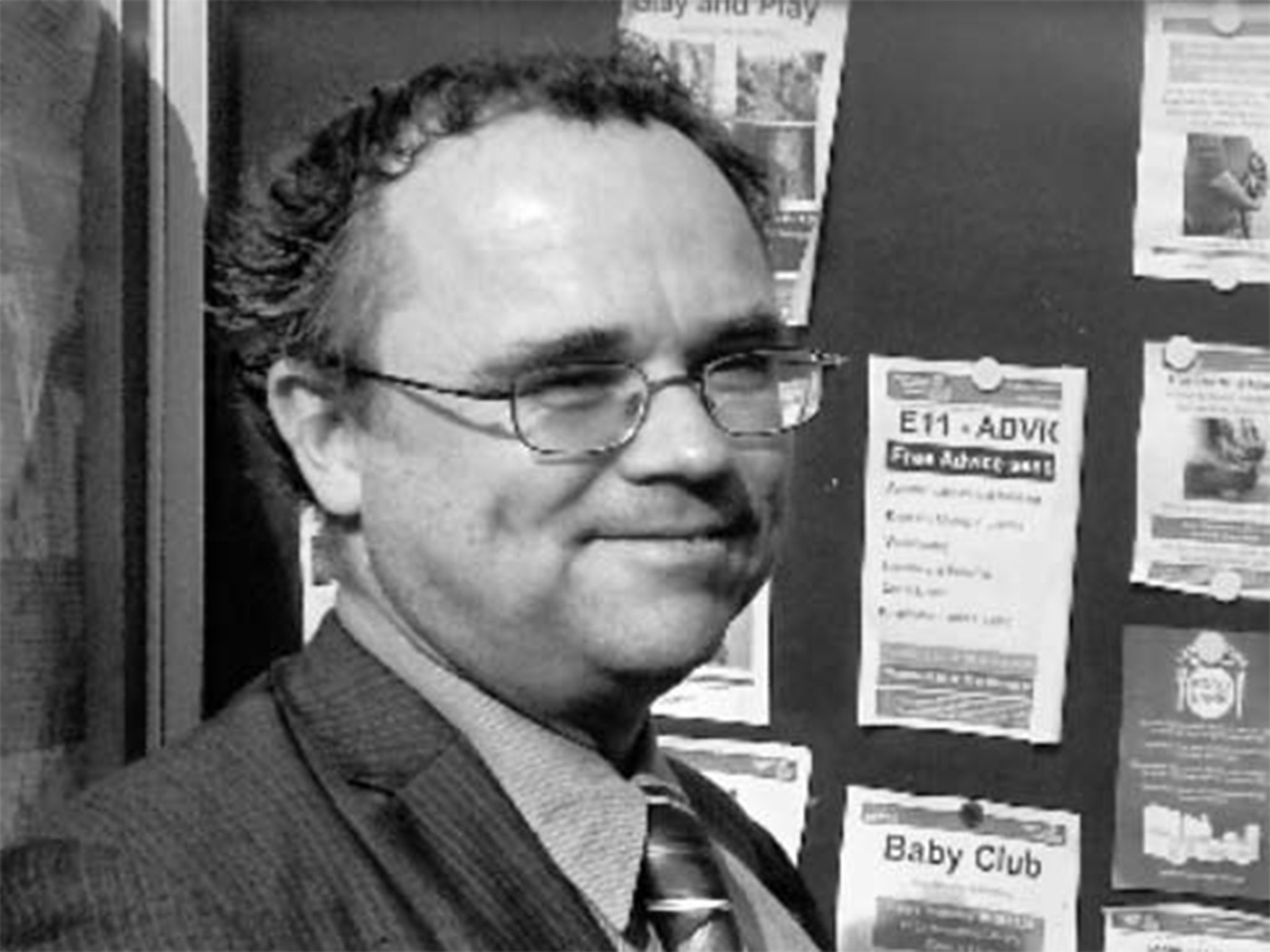Earl Russell: Champion of disabled rights whose successes included bringing about legislation regarding guide dogs
He secured special energy tariffs for those who, unable to get out, are hit with higher bills

Nicholas Russell was a champion for disabled rights. Born with motor skill damage to his hands, he had a natural empathy for the disabled. One of his proudest achievements came when he was Campaigns Officer for the Royal National Institute for the Blind: the law was changed after an intense campaign to allow guide dogs to travel in taxis with their owners.
He came from a family well-known for its liberal tradition, his great-great-grandfather John was a Whig prime minister; his grandfather Bertrand campaigned for nuclear disarmament while and his father Conrad was an historian and Liberal Democrat politician. Russell followed his grandfather in becoming an active campaigner for CND but broke with family tradition by becoming a lifelong member of the Labour Party, serving on several of its committees. He was active in influencing Labour governments on matters relating to the disabled, representing them on the party’s National Policy Forum.
Kate Green MP, Shadow Minister for Disabled People, paid tribute to him: “Nick was a modest, committed and hard-working disability rights campaigner who had so much more to give. His premature passing leaves a gap in the movement. Nick was chair of Labour’s disabled members group and influenced the last Labour Government’s discrimination legislation and had scheduled amendments to Labour’s most recent National Policy Forum.”
He was born in Wimbledon in 1968; he and his brother John’s early years were spent in the US. He returned to England to be educated at the William Ellis School in Gospel Oak, London, going on to read Industrial Relations at Leicester University. While a student he sat on the Socialist Societies executive, forming deep friendships with other aspiring politicians, some of whom he would later work with. He became heavily involved in local Labour politics, joining Brent CND.
He remained an active campaigner for the rest of his life, fighting not only for the disabled but also against racism and homophobia. If a disadvantaged group needed help he was there to champion their cause, with a rucksack full of papers for all the projects he was involved with, arguing in great detail on some topic, usually associated with disabilities and related areas. He earned a reputation as a dogged, focussed, somewhat obsessive advocate for whatever message he was trying to get over.
Among the groups he worked with were the Metropolitan Police, whom he helped train to deal with the problems the disabled face. He was a Unison activist and Chair of the South-East Regional Trade Union Congress’ Disabled Workers Network. He was an executive member of SERA, Labour’s Environment Campaign and had recently argued for an energy tariff for those disabled who, unable to get out of their homes have to pay higher energy bills.
A member of the Co-operative Party, he sat on its North London Area committee and on its Values and Principles Committee for South-East England, committees which reflected consumers’ views, influencing ethics and contributing to campaigns. He also served on the executive of the Socialist Educational Association.
In 2010 he was elected as a councillor in what was described as an unwinnable seat in Waltham Forest. He swiftly earned a reputation as a conscientious and hard-working councillor, taking up every case that was brought to him with the same zeal he used to fight his campaigns.
In 2004 he inherited his father’s title – from 1987 to 2004 he was styled Viscount Amberly – a burden he shrugged off by continuing with his battle to get the House of Lords abolished. Only once did he use the title: when giving evidence against a fellow councillor during a court case he was able to refute suggestions that political ambitions had inveigled him to testify against her, pointing out that if he had wanted a political future he would have continued to play an active role in the House of Lords. His decision to testify against the councillor, who was subsequently disbarred from office, reflected his refusal to compromise, earning him the wrath of some of his fellow party members.
As his brother John said, “Nicholas didn’t compromise, and it often led him into conflicts. He was a very driven man who campaigned to make the world a better place. He had a heart of gold.” Russell, who died of a heart attack, is survived by his fiancée Georgina Farrer; his brother Russell inherits his title.
PETA STEEL
Nicholas Lyulph Russell, 6th Earl, politician and campaigner: born Wimbledon 12 September 1968; died London 17 August 2014.
Join our commenting forum
Join thought-provoking conversations, follow other Independent readers and see their replies
Comments